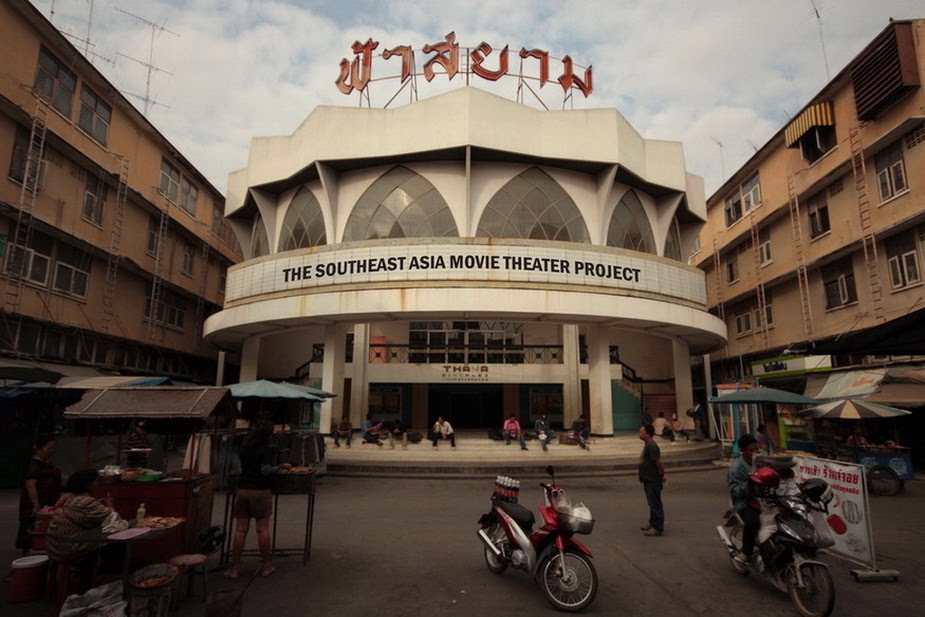Beginning yesterday, May 29th, the 3rd annual Memory! International Film Heritage Festival got underway in Yangon. As the name suggests, viewing fair features a series of films from a wide array of countries from various time periods. The highlight of the 9 day long festival, however, is that these free screenings are being held exclusively at the classic, mid-century Burmese Polychrome Nay Pyi Daw Cinema on Sule Pagoda Road, one of the country's most elegant movie theaters.
The Nay Pyi Daw Cinema, Sule Pagoda Road, Yangon
The Scala Theater, Siam Square, Bangkok.
The Lido Theater, Siam Square, Bangkok
Use of these storied but undervalued theaters as primary venues for film festivals and other cultural events is relatively new to Southeast Asia. Region-wide, the civic value inherent in old movie theaters has been little considered in the eyes of developers and city planning agencies. "Out of date" has been the sentiment most often attached to them. As a result, many of these increasingly rare buildings have been lost to redevelopment, with little serious consideration given to their rebirth. But with film festivals like these two in Yangon and Bangkok, that trend could start to reverse.
When crowd-drawing cultural events are held in such theaters, their definition transforms from urban blight to urban asset. Such is the logical outcome of bringing a flurry of foot traffic and its accompanying economic stimuli to any one destination. Instead of being in the way of new development projects, shopping malls or condo towers, say, they can, in theory, become the focal point of renewal efforts, creating a domino effect of investment. It's like having ones cake and eating it, too.
This kind of urban development - the integration of historic structures with new buildings tailored to contemporary tastes - is a hallmark of healthy and sustainable urban growth. Such concepts have already found regional precedent thanks to the recent reopening of Singapore's Capitol Theatre complex, a mixed-use retail/residential/entertainment development that spawned a restored Capitol Theatre as an anchor and show-piece of the project.
As the film festivals in Yangon and Bangkok are about to emphasize, there can indeed be great value, both cultural and economic, to preserving stand-alone movie theaters.






